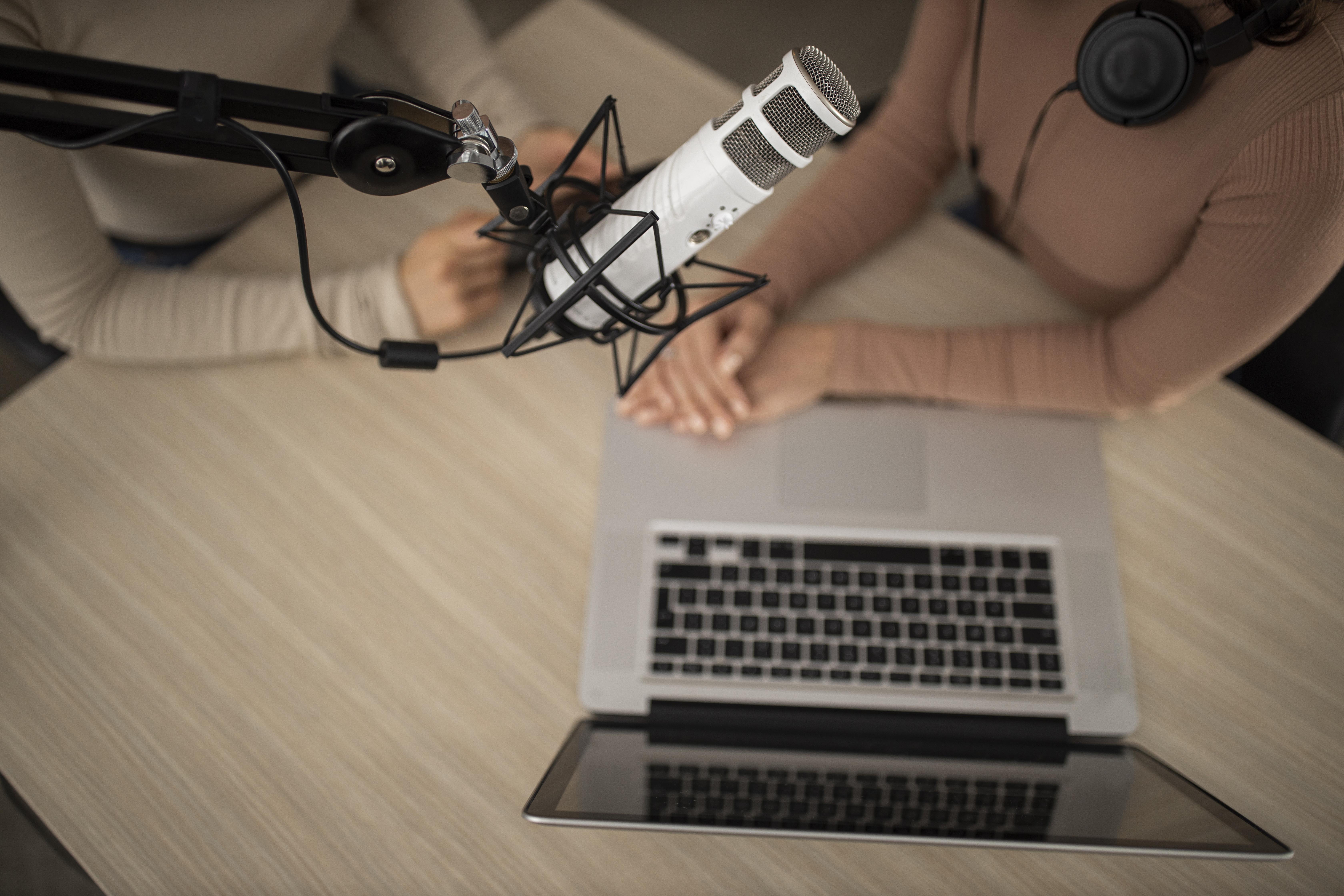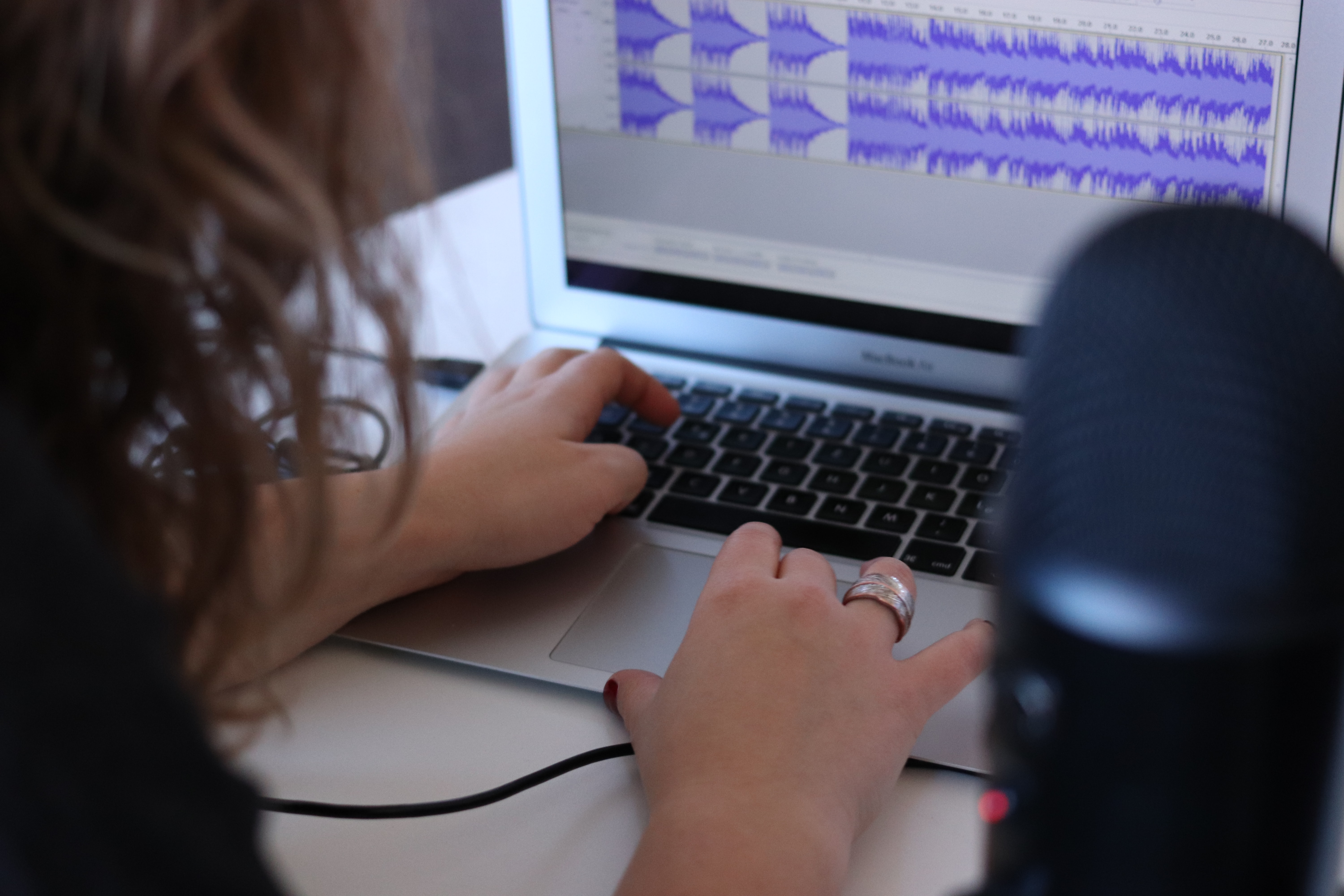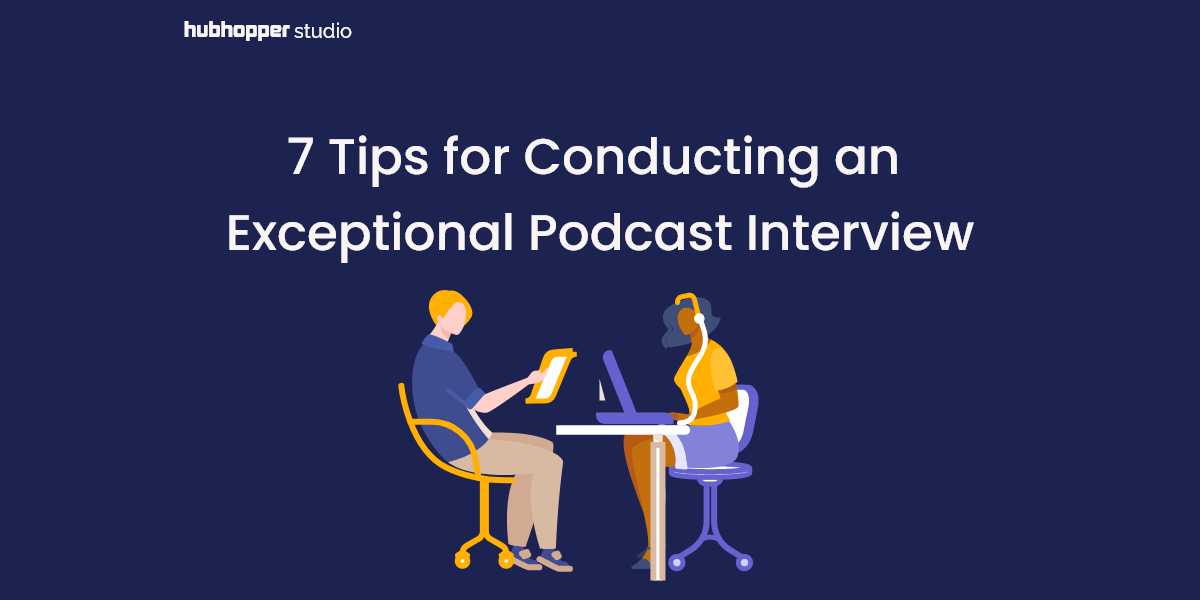
When we think about conducting an interview, the first thing that comes to mind is throwing a number of questions at the guest. Sure, asking good questions is an important part of an interview but there’s a lot that goes behind the scene that turns a good interview into an exceptional one.
It’s about connecting with the right guest, doing proper research, being genuinely interested, creating a rapport, passively listening, killing any awkwardness, and most importantly, making it as informative as you can so that when your audience reaches the end of the episode, they know more than they did in the beginning.
You might have to face some awkward silence and dead ends in a conversation when you first start interviewing guests on your podcasts or you might already have suffered through this. But to get better at this trade, you will need some practice.
To help you, we’ve listed below 7 tips for conducting an exceptional podcast interview.
1. Connect with the right guest
There’s a specific audience for every podcast. Your audience is listening to you because they are interested in what your podcast is about. Similarly, you need to bring guests who will offer them more valuable content on that theme.
They don’t want to listen to someone just because they’ve been a guest on many shows. So bringing a famous guest is not the key here. Connect with a guest who will bring useful insight from your field, something that will educate your listeners.
Now how do you find such compelling guests? Simple, keep yourself in loop with folks in your industry. Your first stop could be social media. For example, if you want to interview a startup founder then you can scout them on LinkedIn. You can also consider a reliable source’s recommendation or someone’s work you liked that made you curious about how their thoughts and ideas will be fun to tune into for your listeners.
Those hidden gems who know what they are saying and will bring more to the table than you asked. These people have the charisma to keep things interesting and will make interviewing them all the more fun.
2. Do your research
Even the best of the hosts out there take this step seriously – dig about the guest. There’s so much to a person than their occupation. Check out their website, social media pages, and anything you can get your hands on. The point is to get a sense of them as a person, what their style and tone are.
If they have been a guest on a podcast before, then check that out too. That way you will know how they usually converse during a show. Do they go off topic frequently? Are they a little shy and sometimes need a nudge from the host? Do they have a good sense of humor or do they have a serious nature? All these details will help you in knowing them better and having a good interaction with them before the actual interview.
This not only helps you in preparing well as a host, but it also creates a good impression on the guest. But don’t overdo it. You don’t have to remember every award they won. Leave some space for them to fill you in on some of the stories and facts.
3. Send them questions in advance
It’s always a good idea to send the questions in advance. This way your guest will have time to prepare for those questions. It will also give them an idea about what kind of direction you are aiming to go in during the interview. If they have any issue with the questions they can inform you beforehand and you can avoid or alter those questions.
4. Pre-Interview process
Before you begin the interview, give a quick outline of the show to the guest. Start with making your guest comfortable and at ease if you are interviewing in person. Allow them some time to get used to you and the atmosphere. If it’s their first time then it can be a little nerve-racking.
Move forward by giving them an idea about your audience and what you aim at achieving through this interview. Also, practice the questions with them once. This will help the guest in tailoring their answers according to your audience. Ensure them that you will support them throughout the interview if ever they need it.
If you are conducting a remote interview then make sure that you are using good software to record the interview and that there’s a good internet connection on both ends. Go through the same briefing process and see if there’s any issue with the equipment or the audio so that you can fix it before recording the episode.

In the end, see if they have any questions for you and help them out. Inform them when and where the episode will go live. Ask for the important links to the book, show, or any other work they’d like to share with people.
During all the pre-interview chat, if you find something interesting then you can always mention it during the actual interview but, of course, keep the audience in the loop.
5. Passive Listening
Listening is a hard task for everyone. We all want to speak our thoughts first and often skip or overlook what the other person is saying. However, such a habit can ruin a fun interview. You need to passively listen to your guest and that’s only possible when you are genuinely interested in what they’ve got to say.
It’s also possible that you might zone out or drift away from the conversation while the guest is talking, thinking about the next question that you’ll ask. Avoid doing that. You might not be trying to but it can seem rude when you miss out on a portion of their response and your reply doesn’t fit the situation.
If you have just started to interview people for your podcast, then it might be difficult to keep quiet for the most part. You are used to talking all the time and suddenly you are just listening. That’s why it’s good to score this balance during the practice session.
6. Don’t interrupt but also keep it moving
Practice patience when interviewing a guest. Don’t interrupt unnecessarily when they are in the middle of explaining something even if it’s to agree with them every few seconds. It can get distracting for the listeners.
It’s easy to get carried away during the interview, for both the host and the guest. But as a host, try not to dominate the session.
Your aim is to get the most out of your guest’s expertise and experience so ask them a question and let them take over from there. Of course, you need to bring them back on track when they steer away from the focal point but try doing it inconspicuously.
It’s your job as the host to keep the interview moving. Keep your questions clear and precise. Keep the guest in loop and just have fun with it.
7. Be flexible
Being rigid with your questions will result in awkward interaction and no useful content. Imagine the number of fun stories and facts that will never reach your audience just because you were working according to a checklist and rules.
Try to ask open ended questions so that you don’t get a static response. Things might not always end up as you imagined. In that case, don’t panic and be flexible.
Steer away from the generic question that every other podcaster is asking. Instead, come up with some meaty questions that will offer a fresh perspective to your audience.
Also, keep track of time when recording the interview. Sometimes it can go up to two hours or more. In such cases, you can fix this during the pre-interview process by carefully choosing the questions that need to be in the interview and remove the ones that are not important. If the interview still exceeds your episode time limit then you can upload the interview in two episodes. This way you can build anticipation for the next episode among your audience.
Just remember that even though it’s mostly your guest giving you content, it’s still your responsibility to extract that content out of them. There will be times when you will face some difficult guests. You can’t solely depend on them to give you a great episode. You will have to take what they give you, add your own charm and then make it an exceptional interview episode.
Interviewing is a skill that you can improve after multiple interactions with different guests. As you use these tips and learn from past interviews, you will be able to conduct good interviews in no time!
Happy Podcasting!





